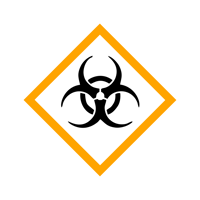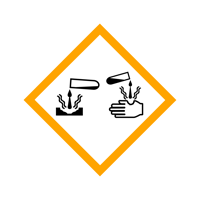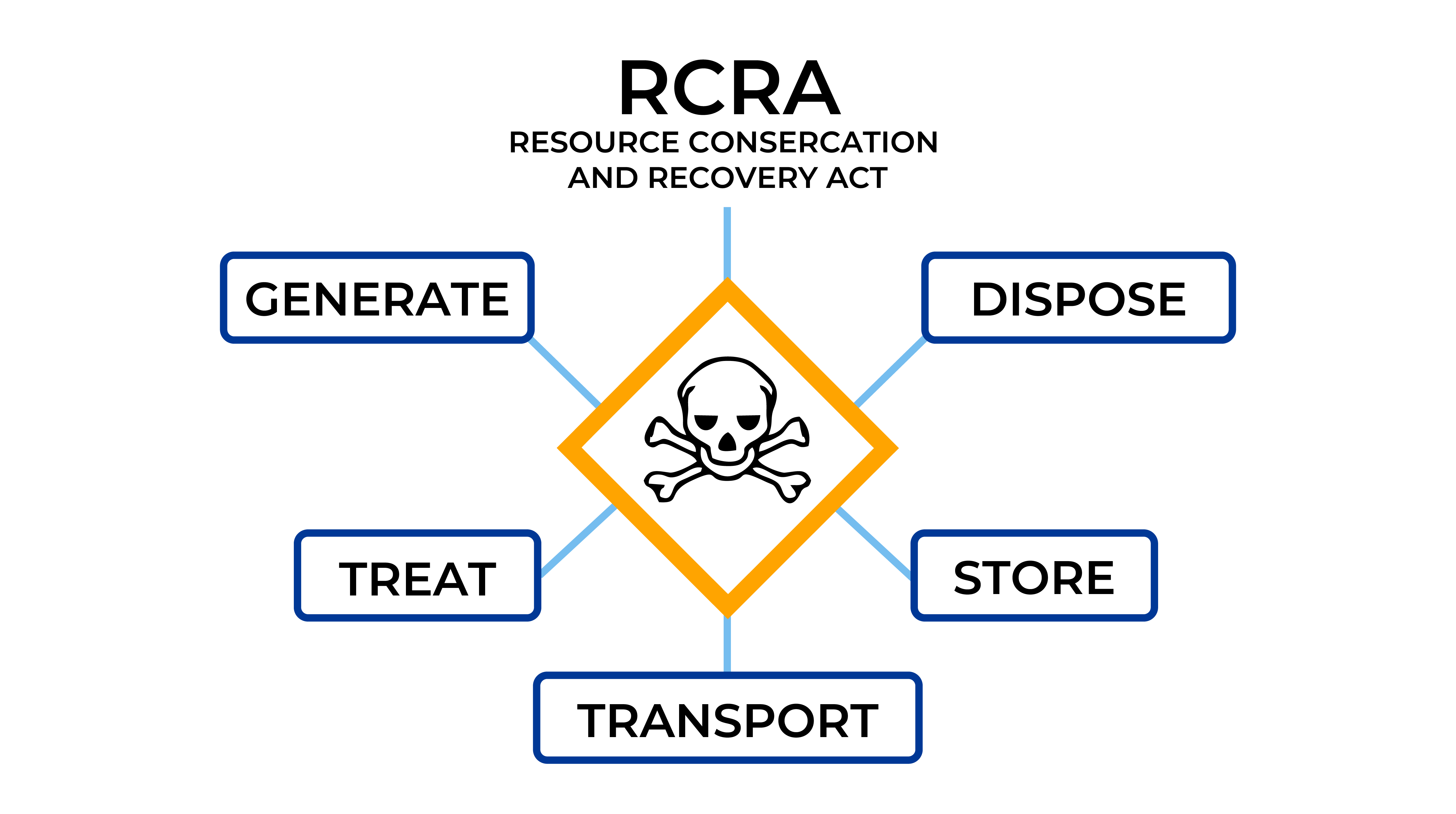5 min read
Hazmat Basics: Your Comprehensive Guide to Training and Certification
 OCCU-TEC, Inc.
:
Feb 23, 2024
OCCU-TEC, Inc.
:
Feb 23, 2024

The realm of hazardous materials (hazmat) can seem shrouded in mystery, with specialized jargon and complex regulations. But navigating this world doesn't have to be a hazardous journey itself.
This guide aims to illuminate the landscape of hazmat training and certification, empowering you to understand its nuances and navigate its requirements with confidence in whatever job you’ve been assigned to complete.
Click here to explore OCCU-TEC'S workplace safety training program services
Four Jobs That Require Hazmat Training and Certification Expertise:
#1. Commercial Truck Drivers: Holding a Hazardous Materials Endorsement (HME) is crucial for CDL holders transporting these materials. OSHA mandates proper training to ensure safety on the road.
Jump to Commercial Truck Drivers
#2. Hazardous Materials Technicians (Hazmat Techs): These specialists respond to spills, clean up contaminated sites, and assess potential hazards. Their training involves in-depth knowledge of hazmat handling and emergency procedures.
Jump to Hazardous Materials Technicians
#3. Certified Hazardous Materials Managers (CHMMs): Overseeing hazmat compliance within organizations, CHMMs possess advanced expertise in regulations, risk assessment, and waste management.
Jump to Certified Hazardous Materials Managers
#4. Environmental Specialists: Understanding RCRA training helps these professionals handle hazardous waste in accordance with environmental regulations.
Jump to Environmental Specialists
#1. Hazardous Materials Endorsement for Commercial Driver’s License Holders: Your Key to Safe and Legal Hauling
For commercial drivers hauling hazardous materials, the road to success isn't just paved with asphalt – it's paved with proper training and the vital Hazardous Materials Endorsement (HME) on your CDL. Think of it as your passport to safely navigate the complex world of transporting potentially dangerous cargo.
But why is the HME such a big deal? It all boils down to safety and compliance. The Occupational Safety and Health Administration (OSHA) sets strict regulations for transporting hazardous materials, and the HME ensures you possess the knowledge and skills to handle these substances responsibly.
TYPES OF HAZARDOUS MATERIALS |
||
 |
 |
 |
CORROSIVE CHEMICALS |
FLAMMABLE LIQUIDS |
EXPLOSIVE CHEMICALS |
Whether it's flammable liquids, corrosive chemicals, or explosive materials, you'll be equipped to:
-
Identify and classify hazardous materials.Understanding the different classes and their unique risks is crucial for proper packing, labeling, and transport.
-
Secure your cargo correctly. From using the right placards and hazmat labels to ensuring proper tie-downs, you'll know how to keep your load secure every mile.
-
Respond to emergencies confidently. Spills, leaks, and accidents can happen. With the HME training, you'll be prepared to react calmly and effectively, mitigating risks to yourself and the public.
Having the HME on your CDL doesn't just open doors to more job opportunities – it protects you from legal repercussions. Failing to comply with OSHA regulations can result in hefty fines, license suspension, and even criminal charges.
#2. Hazardous Materials Technician (Hazmat Tech) Certification
Ever seen a crew in bright yellow suits, cautiously approaching a truck spewing fumes, or meticulously cleaning up a chemical spill? These are the Hazardous Materials Technicians (Hazmat Techs) – the real-life heroes who stand between us and the potential dangers lurking in the world of hazardous materials.
Think of them as the special forces of the environmental and emergency response world. Their duties are diverse and crucial, ranging from:
-
Responding to hazmat incidents: This could involve anything from chemical spills and leaks to radioactive material contamination or bomb threats.
-
Assessing risks and developing response plans: Hazmat Techs analyze the situation, identify the specific hazard, and determine the safest course of action to contain and mitigate the threat.
-
Implementing protective measures: They set up decontamination zones, don specialized protective gear, and utilize specialized equipment to handle the hazardous materials safely.
-
Collecting samples and evidence: For further analysis and investigation, Hazmat Techs carefully collect samples of the material and any contaminated substances.
-
Cleaning up and decontaminating the affected area: Once the immediate threat is neutralized, they meticulously clean and decontaminate the affected site to ensure long-term safety.
The path to becoming a Hazmat Tech involves rigorous training and certifications. Here's a breakdown:
STEPS TO BECOMING A HAZMAT TECH
|
Step #1 Basic Requirements |
Most programs require a high school diploma or equivalent and a clean criminal record. Some employers may prefer candidates with previous experience in fields like firefighting or emergency medical services. |
|
Step #2 Training |
You'll need to complete a comprehensive Hazmat Technician training program. These programs typically cover topics like:
|
|
Step #3 Certification |
Upon successful completion of the training program, you'll be eligible to take exams for professional certifications, such as the:
|
#3. Certified Hazardous Materials Manager (CHMM)
Ever wondered who ensures the safe handling, storage, and disposal of hazardous materials across industries? Enter the Certified Hazardous Materials Manager (CHMM), the mastermind navigating the complex world of regulations and risks.
Think of a CHMM as the conductor of a hazardous materials orchestra. They oversee every aspect, from identifying and classifying materials to developing safety protocols and ensuring compliance. Their responsibilities are as diverse as the materials they manage, and their expertise is crucial for protecting humans and the environment.
The benefits of CHMM certification extend far beyond just personal growth. Here are a few reasons why it's worth considering:
Career advancement
CHMMs are highly sought-after professionals across various industries, including environmental consulting, waste management, chemical manufacturing, and transportation. The CHMM certification opens doors to leadership positions and higher salaries.
Increased credibility and expertise
Earning the CHMM certification validates your knowledge and skills in hazardous materials management, solidifying your reputation as a trusted expert.
Making a difference
CHMMs play a crucial role in protecting public health and the environment. By ensuring safe handling and disposal of hazardous materials, they contribute to a cleaner and safer world.
The path to becoming a CHMM requires dedication and commitment. Here are the prerequisites:
-
Bachelor's degree in a relevant field (e.g., environmental science, engineering, chemistry)
-
Minimum of four years of professional experience in hazardous materials management
-
Passing the rigorous CHMM examination
#4. Resource Conservation and Recovery Act (RCRA) Training
Picture a world where hazardous waste isn't just tossed aside, but carefully managed to protect our environment and health. That's the vision behind the Resource Conservation and Recovery Act (RCRA), and RCRA training is the key to unlocking its power.

Imagine it like a traffic cop for hazardous waste, directing its proper handling, storage, and disposal. This complex law outlines regulations for:
-
Identifying hazardous waste: From flammable liquids to toxic chemicals, RCRA classifies these materials, ensuring everyone recognizes the potential dangers.
-
Managing hazardous waste: From cradle to grave, RCRA tracks waste's journey, dictating safe storage, transportation, and treatment practices.
-
Minimizing waste generation: RCRA encourages responsible waste reduction and recycling, promoting a more sustainable future.
Whether you're a generator, transporter, or treater of hazardous waste, understanding RCRA is crucial. Here's why:

|
Compliance is key: Ignorance is no excuse when it comes to RCRA. Training equips you with the knowledge to avoid costly fines and legal repercussions. |

|
Safety first: Proper waste management protects not just the environment but also the health and safety of workers and communities. |

|
Responsible waste disposal: RCRA training empowers you to contribute to a more sustainable future by minimizing environmental impact. |
The specifics may vary depending on your role and waste type, but generally, RCRA training delves into:
-
RCRA regulations and requirements: Learn the ins and outs of the law, from waste classification to proper storage and disposal procedures.
-
Emergency preparedness and response: Be equipped to handle spills, leaks, and other hazardous waste incidents safely and effectively.
-
Documentation and recordkeeping: Understand the importance of proper paperwork for waste tracking and compliance.
RCRA training is just the first step. Staying informed about ongoing regulatory updates and best practices is essential for maintaining compliance and ensuring responsible waste management.
If you're involved in any stage of the hazardous waste lifecycle, RCRA training is essential for you, including:
-
Generators: Businesses and individuals producing hazardous waste, like manufacturers and laboratories.
-
Transporters: Companies hauling hazardous waste from its source to treatment or disposal facilities.
-
Treaters and disposers: Facilities that process or permanently dispose of hazardous waste.
Who Needs HAZMAT Transportation Training?
The need for Hazmat transportation training extends beyond a single job title or industry. Anyone involved in any stage of the transportation process for hazardous materials should have a proper understanding of safety protocols and regulations.
If your job involves any of the activities below, then understanding hazmat transportation training is critical. Improper handling can lead to environmental damage, public health risks, and legal repercussions.
|
Which Tasks Require HAZMAT Training? |
1. Packing, labeling, or shipping hazardous materials |
|
2. Responding to hazmat emergencies |
|
|
3. Handling or managing hazardous waste |
How Often Does Hazmat Certification Need to Be Done?
Ongoing training is crucial to keep pace with evolving regulations, including some requiring annual refreshers. Staying informed ensures compliance and protects your organization from potential liabilities.
How to Create a Training and Certification Program for Your Own Workforce
Empowering your workforce with customized hazmat training is an investment in safety and compliance. Integrate hazmat training and certification into your overall employee safety training, utilizing online resources and on-site workshops for comprehensive learning.
Remember, proper hazmat training and certification isn't just a checklist; it's an investment in the safety of your employees, your community, and the environment. This guide has equipped you with the knowledge to navigate this critical realm – now, it's time to embark on your own hazmat journey with confidence.

